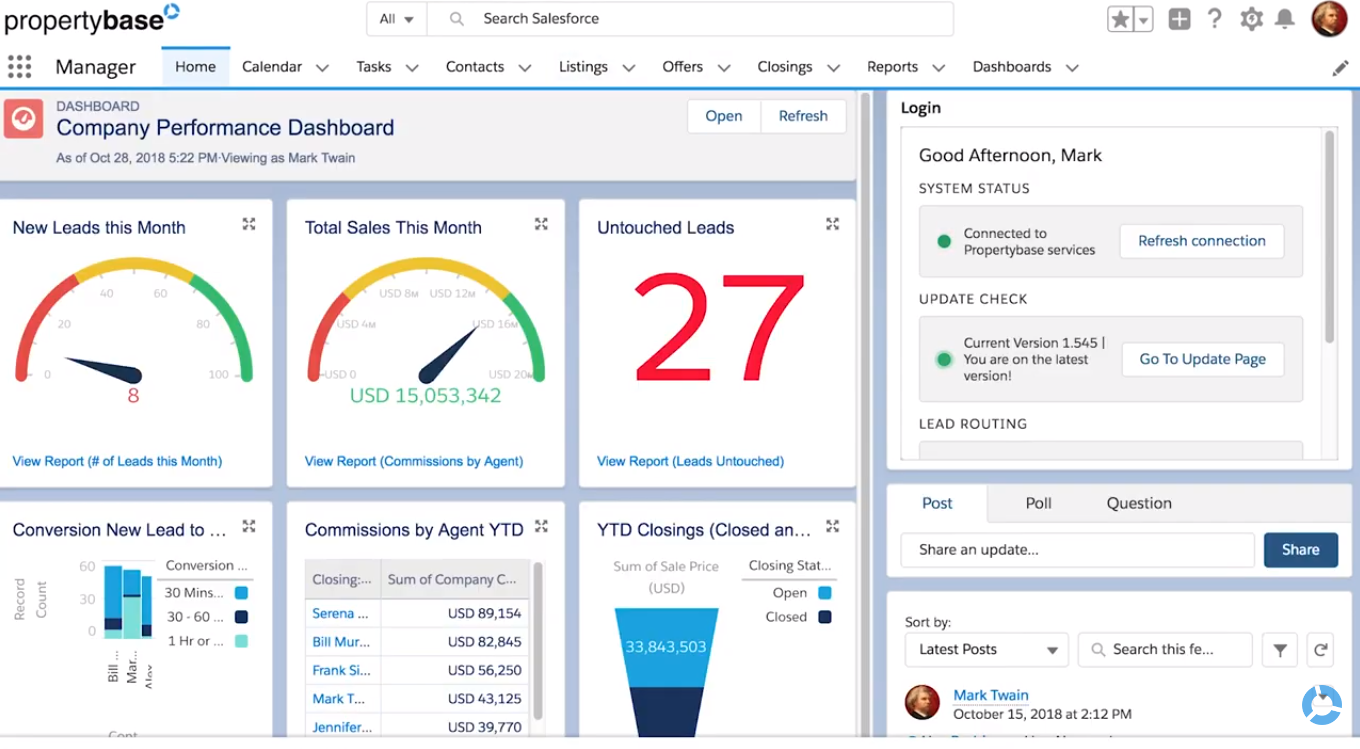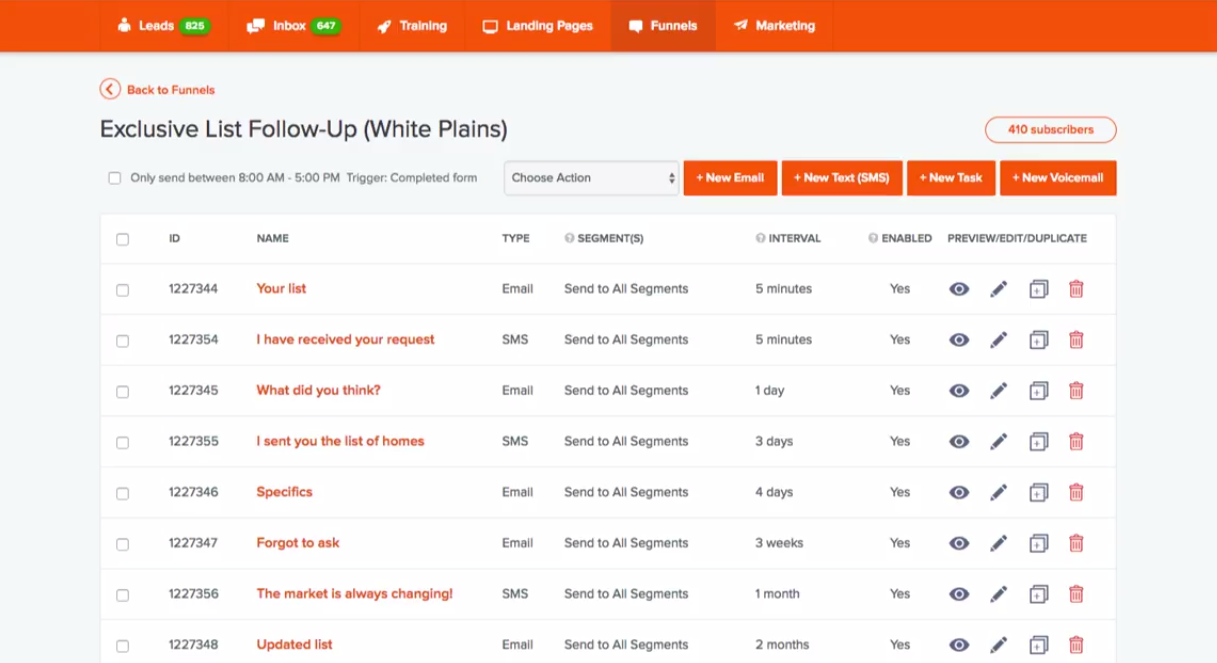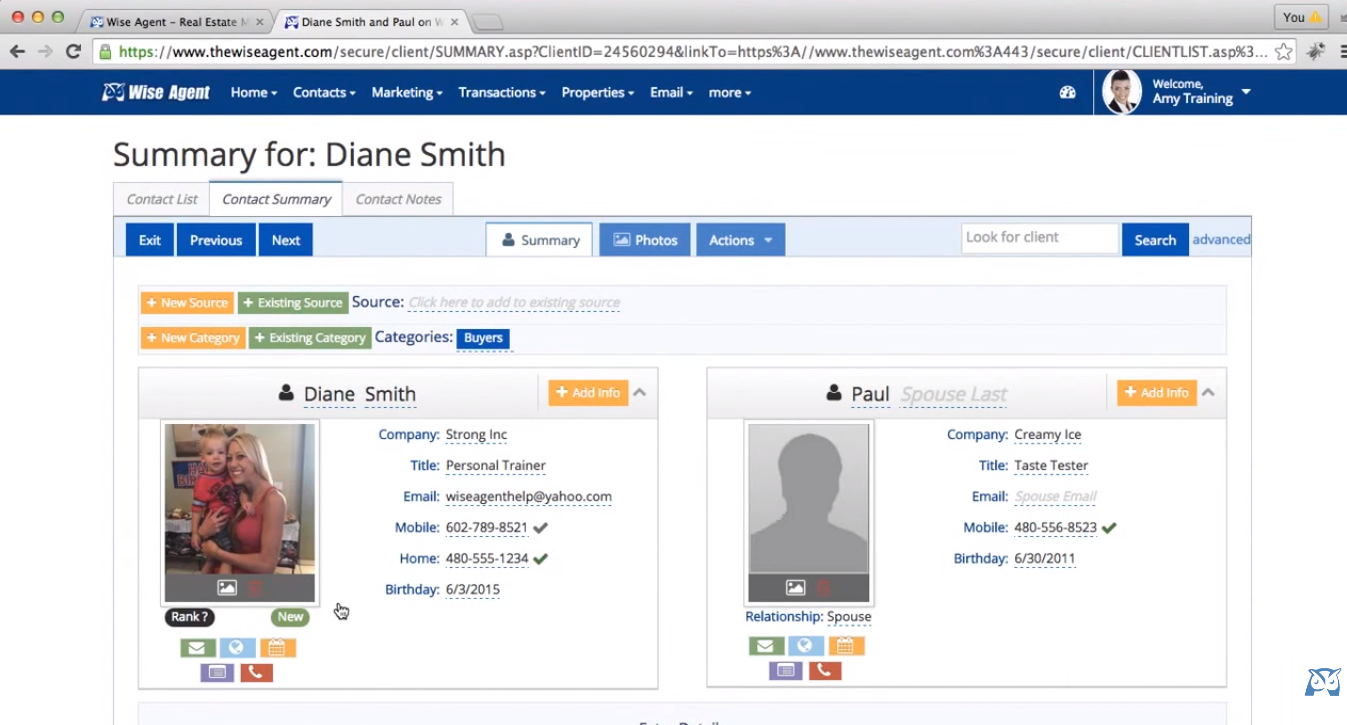The real estate business is profitable, but that doesn’t mean it’s not stressful. Property managers often face a long list of problems, which include handling a ton of paperwork, communicating with tenants and maintenance staff, and tracking transactions.
For instance, 35.1% of property managers think that lack of automation limits the growth of their business. The manual and administrative processes involved in real estate management take up too much time, especially with multiple properties being managed. Technology such as real estate management software can be the solution to this problem.
Real estate software eases the burden of administrative work and helps improve the productivity of real estate businesses, among other benefits. This article will discuss these benefits, along with a definition of real estate software, its key features, and potential issues with these systems. We’ll also list down the top five real estate software today to give you a better idea of what these systems can do.
What Is Real Estate Software and How Does It Work?
Real estate software refers to a class of computer applications that automate administrative tasks for landlords and other real estate professionals. These software solutions reduce the costs and hassle of real estate management by streamlining administrative tasks. These include processes such as rent collection, tenant communication, and property maintenance.
These systems usually provide a centralized hub through which landlords and property managers can do their tasks. Tenant information and lease agreements can be uploaded to the system for easier tracking. Additionally, landlords can use these platforms to track and assign work orders to maintenance workers. Some real estate software solutions also offer marketing modules that allow real estate professionals to publish listings of available offerings.
List of Best Real Estate Software
As we mentioned before, you have plenty of options if you want to start using real estate software. Here are the top five real estate systems today.
- Wise Agent: Wise Agent focuses on helping property managers and owners reach out to more potential clients. The software offers smart marketing automation and commission trackers to keep the sales process as streamlined as possible. Wise Agent’s plans start at $29 per month, with a 14-day free trial.
- BoldLeads: BoldLeads comes with a built-in lead nurturing system. Task reminders and statuses ensure that no leads fall through the cracks. Additionally, the software lets you create ad campaigns so you can get leads that are easier to convert into sales opportunities. You can contact the BoldLeads sales time to get details on the software’s pricing.
- EYESPY360: An advanced real estate software, EYESPY 360 allows real estate professionals to share virtual tours with potential buyers. Users can create floorplans, panoramic photos, and 3D models using a 360-degree camera. The software offers a free plan, and its paid plans start at $13.99 per month for 3 active virtual tours.
- Propertybase: Built on Salesforce architecture, Propertybase simplifies real estate management by providing a centralized platform for contacts, leads, and listings. Additionally, the software offers a Marketing Center where you can create campaigns for lead nurturing. If you want details on the software’s pricing, you can contact its sales team and request a quote.
- PlanPlus CRM: PlanPlus CRM improves productivity for sales reps and managers by creating lists of their most important to-dos daily. The software also offers tools that automate lead management, allowing sales reps to focus on more important tasks like closing deals. PlanPlus’ packages start at $12 per month for single-user accounts.
- Top Producer: Top Producer makes it easier for agents and property managers to manage leads and follow-ups with its mobile-friendly interface. The software’s Starter plan costs $50 per user per month.
- REIPro: REIPro centralizes all essential real estate CRM functions, including lead generation, listing management, and marketing. The platform’s Standard Plan costs $97 per month.
- Bitrix24: Bitrix24 lets you upload unlimited contacts and provides features for client prospecting, lead generation, and email marketing. The software’s paid plans start at $19 per month for two users.
- RealOffice360: Designed for real estate agents, RealOffice360 offers features for task management and deal tracking, plus a centralized calendar for tasks and contacts. The software’s Premium plan costs $19 per month, billed annually.
- Follow Up Boss: Follow Up Boss ensures that new leads are instantly categorized and contacted, with always-on follow-up features that keep leads from falling through the cracks. You can enjoy these features starting at $49 per user per month.
Key Features of Real Estate Software
Real estate software solutions often offer a wide selection of features. These are the common functions you can expect from real estate management systems.
Tenant and lease tracking
These systems speed up administrative tasks for landlords, so most of them feature tenant and lease tracking. Landlords can easily add tenant information and lease agreements to the system and do away with paper records. Many of these systems also come with features for move-in and move-out management and tenant screening.
Accounting and payments
Most real estate software solutions are equipped to help with payment collections for rent and utility. They can help with the management of accounts payable and general ledgers as well. The platforms help keep your numbers accurate by aiding in bank reconciliation and generating financial reports. This way, you can get a clearer picture of your business expenses and profits.
Building maintenance
The software also helps you manage work orders submitted by your tenants or employees. Tenants can submit work orders for a wide range of requests, including pest control and structural issues. You can also set these systems to automatically assign work orders so tenants get a prompt response to their requests.
Tenant portal
Many real estate management systems also provide tenant portals. Through the tenant portal, residents can communicate with landlords or building staff whenever needed. Tenants can also use the portal to pay rent and submit work requests.
Benefits of Real Estate Software
We’ve already touched on some of the benefits that real estate management software solutions provide. Here are the ways these systems can streamline your business.
Less time spent on administrative work
There’s plenty of administrative work in real estate management, such as collecting and updating tenant information and storing tenant-related documents. Real estate software automates every aspect of these processes, so landlords, property managers, and real estate professionals can focus on more important tasks.
Convenient finance tracking
The software also helps you manage finances for the properties you handle. It monitors payments from tenants and sends reminders for upcoming and late payments. These systems can also track your expenses so you know how these affect your income. Aside from tracking transactions, real estate management software generate accurate financial reports that keep you updated on your business.
Improved data security
Real estate software can improve the security of tenant records, invoices, lease agreements, and other documents used in real estate management. This is especially true compared to systems where paper-based records are used. Cloud-based property management software provides encryption and security features such as firewalls and authentication to keep data as secure as possible.
Easier communication
Real estate software facilitates improved communication between landlords and tenants. This is especially true for systems that offer a tenant portal. Tenant portals ensure that residents and applicants can get in touch with managers and relay concerns if needed. As a result, the easier communication boosts tenant-landlord relations.
Types of Real Estate Software
Aside from real estate management software, there are a couple of other types of real estate software you might be interested in.
Real estate CRM software
This type of real estate software is focused on improving a property manager’s relationship with his clients. These software solutions provide built-in tools for marketing, lead generation, and CRM. You can manage contact data, nurture leads, and track sales information. Moreover, the software helps you follow up with clients by phone, email, or social media. What’s great is that many real estate management software solutions also incorporate these features.
Augmented reality and virtual reality real estate software
Many real estate professionals today turn to AR and VR technology to provide potential buyers with more unique experiences. With these technologies, sales reps can offer virtual tours and showcase 3D product visualizations. Similarly, some AR/VR real estate software offer object recognition features. Potential buyers can point their phones at a street to view information about available properties.
Trends in Real Estate Management
The real estate industry, including the technology it uses, is no stranger to innovation. Real estate technology is becoming more popular among real estate professionals and potential buyers. Aside from the increasing use of these technologies, landlords and property managers can look forward to the following trends:
Increased use of business intelligence
Business intelligence can empower real estate applications, providing real estate professionals with tools to make more informed decisions. These tools can also make more accurate predictions on customer behavior and define relationships of users of real estate apps.
Blockchain for improved security
Blockchain technology allows property managers and real estate professionals to offer smart contracts, which are impossible to edit or alter once encrypted. These contracts provide more security for all parties involved. Blockchain technology also reduces the paperwork and middlemen involved in real estate deals.
Assistance from artificial intelligence algorithms
AI algorithms offer plenty of potential for the real estate industry. For instance, the technology can be used to match clients with more relevant recommendations for real estate deals. Landlords and property managers can also use the technology to monitor long-term trends that could affect their properties, such as crime rates, maintenance requirements, and property prices.
Potential Issues with Real Estate Software
Despite the usefulness of real estate management software, there are still some issues that you can experience. The most common issues you can encounter with these systems include:
Inadequate security features
Real estate professionals often handle sensitive data in the form of customer information. Real estate management software with inadequate security features puts this sensitive information at risk.
Incompatibility with other systems
Real estate management software works to ease the burden of administrative processes on landlords and property managers. A real estate management system that’s incompatible with other software you use just eats up time that you can focus on more important tasks.
Insufficient features
You won’t lack for options when it comes to real estate management software, but not all these systems provide the same set of features. Some of these systems have limited features for automating administrative work and providing improved service to tenants.
Factors to Consider When Buying Real Estate Software
Knowing what to look for in real estate software ensures that you’ll choose a system that’s the best fit for your business. Consider looking into these features first when shopping for real estate applications.
Ease of use
Real estate software should have a user-friendly interface so it doesn’t add to the work of managing properties. The good news is that many of these systems don’t have a steep learning curve, so landlords and property managers can use them to full advantage.
Cost
Not all real estate management software solutions come at the same price point. For instance, some of these systems may have basic monthly pricing plans with additional costs for add-ons. Knowing how much the setup will cost in total ensures that you’re fully prepared for integrating such systems into your business.
Integrations with other systems
Real estate software must be able to seamlessly integrate with the other systems you use for managing your properties. For instance, the software you use must be able to process payments through the payment methods commonly used by your tenants.
Robust security features
Real estate management software should offer reliable security features to protect the data handled by property managers. Some security features you should look for include authentication technology and firewalls to keep data safe.



